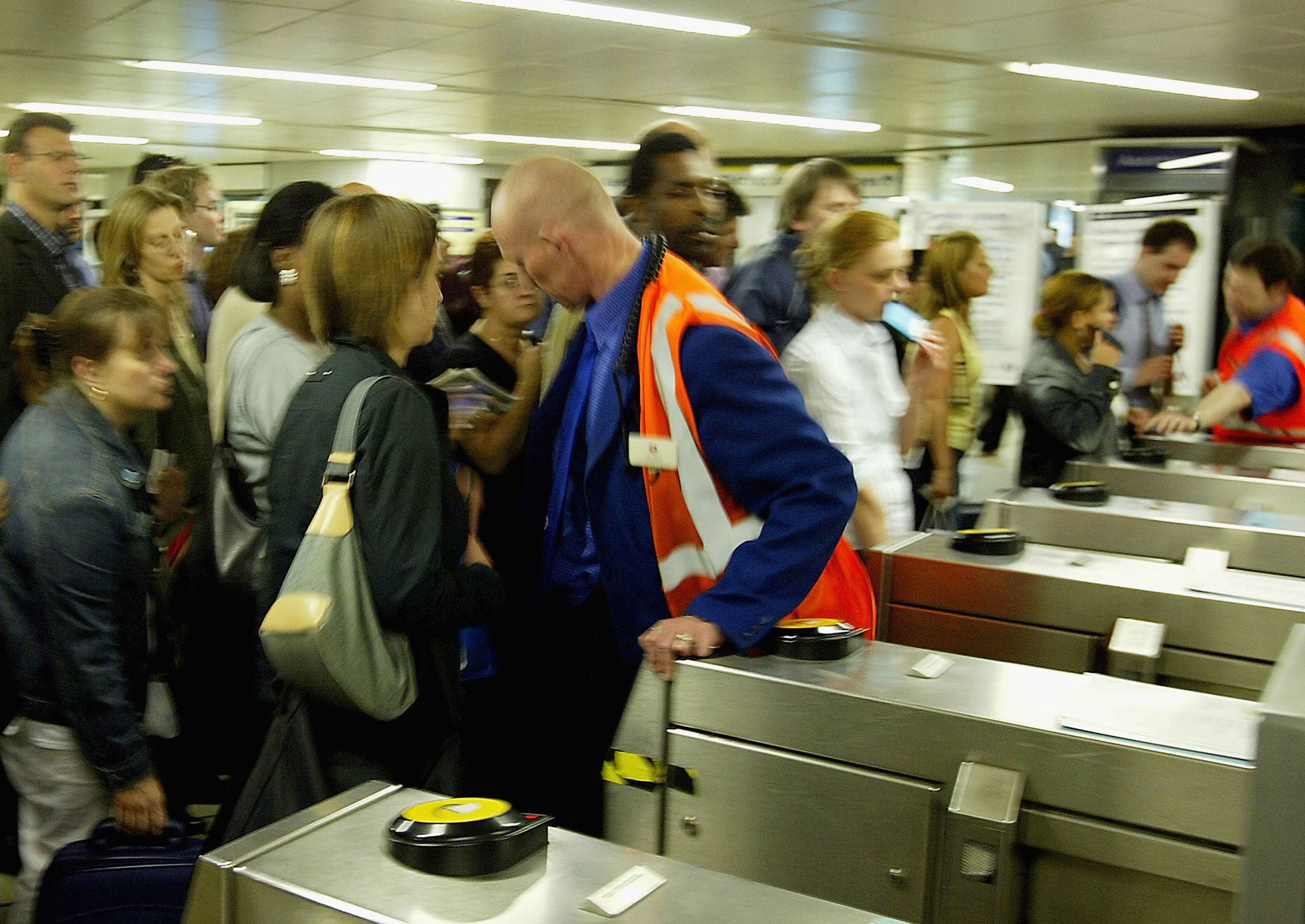For disabled travellers, the loss of tube staff gives reason to worry
It doesn't matter where they are, but having someone to help is vital


Your support helps us to tell the story
From reproductive rights to climate change to Big Tech, The Independent is on the ground when the story is developing. Whether it's investigating the financials of Elon Musk's pro-Trump PAC or producing our latest documentary, 'The A Word', which shines a light on the American women fighting for reproductive rights, we know how important it is to parse out the facts from the messaging.
At such a critical moment in US history, we need reporters on the ground. Your donation allows us to keep sending journalists to speak to both sides of the story.
The Independent is trusted by Americans across the entire political spectrum. And unlike many other quality news outlets, we choose not to lock Americans out of our reporting and analysis with paywalls. We believe quality journalism should be available to everyone, paid for by those who can afford it.
Your support makes all the difference.So it’s goodbye to the tube ticket office. Well at least by 2015.
Transport for London has been very clever about how it has handled the news.
The phasing out of ticket offices was announced alongside a promise of 24 hour tubes at weekends on some lines, the provision disabled access at another 27 stations (about time) plus wi fi coverage at all below ground stations.
That’s a lot of sugar to help the nasty medicine of 950 job cuts to go down, although thanks to the “night tube” there will also be 200 new hires.
Unsurprisingly the RMT union is quite cross and predictably there are now rumblings of strikes in the run up to Christmas.
Which might well end up further pushing the public into the TFL camp, given the pain and disruption these cause to the travelling public.
Some more evolved tactics would be welcome, but we’re not likely to get them any time soon.
Does that mean game set and match to TFL?
It’s true that the raison d’être of the ticket office has faded away as a result of the undoubted success of the Oyster card. The machines used to buy and top these up are quicker, more efficient, and better suited to handling the numbers the tube is dealing with today than a ticket office. You can even add money online if you want, although that means registering your card.
But the machines aren’t perfect. Sometimes they’re out of order, sometimes you might need assistance, particularly if you are a visitor to the capital either from abroad or elsewhere in Britain. TFL says that less than three per cent of all Tube journeys involve a visit to a ticket office. Which doesn’t sound like much. Except that there are millions of journeys on the tube, and so that still adds up to an awful lot of visits. I suspect most of those visits will have been made because the people making them needed help.
Ah but wait, says TFL, there will still be staff at stations. They’ll be floating around with iPads. Happy to help!
We’ll see. With budget cuts looming, you can see the direction of travel, and it is potentially a worrying one. How long before the decision is taken to rationalise further by stopping more lightly used stations from being staffed at all?
As a disabled traveller, it doesn’t much matter whether staff are in the ticket office, or wandering around with an iPad in their hands. I just need someone there to provide assistance. There are some genuinely lovely people in those blue uniforms who go out of their way to help. They were particularly visible during the Paralmpics (funny that) but are rather harder to find now.
I’d like to use the tube more often but when you are described as a health and safety risk, it tends to put you off.
I was trying to manage crutches and a wheelchair on a platform and was in that position because I’d been treated with an astonishing lack of courtesy and even had my fitness to travel questioned by a staffer who didn’t want to help (l’d suffered some shooting pains at the station, unpleasant but mercifully transient).
That was a particularly bad incident, and I stress, it is not at all reflective of all tube staff.
However, it is also not the first time that I’ve endured the “are you sure you’re well enough to travel” line either.
And when staff act like that, stations might just as well be un-manned.
Join our commenting forum
Join thought-provoking conversations, follow other Independent readers and see their replies
Comments